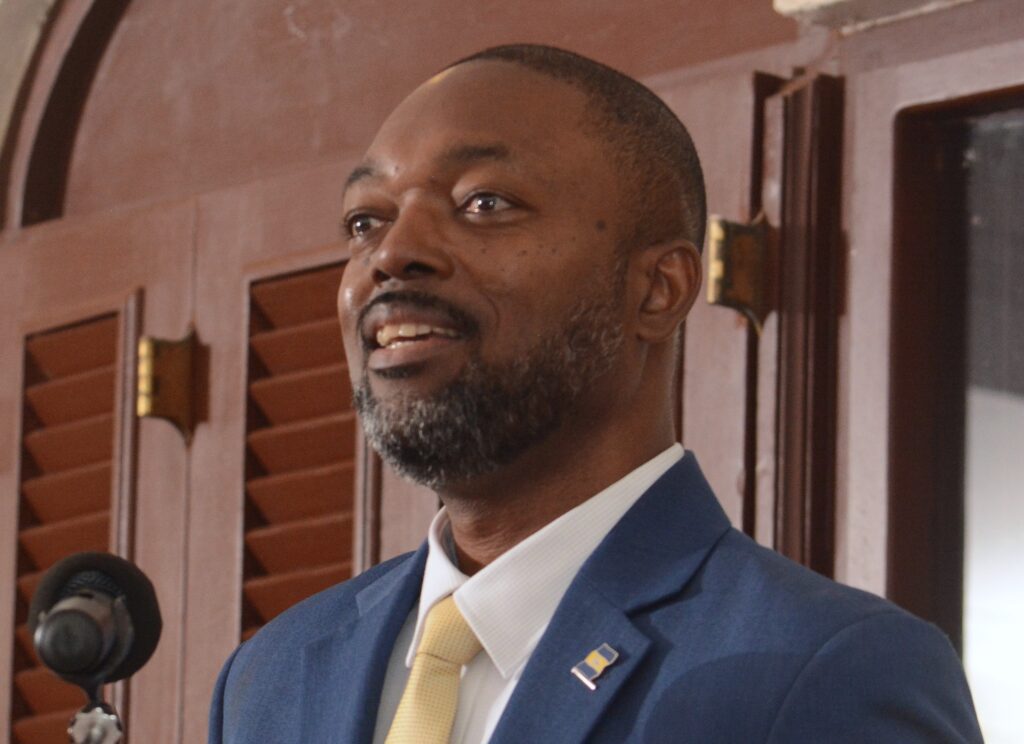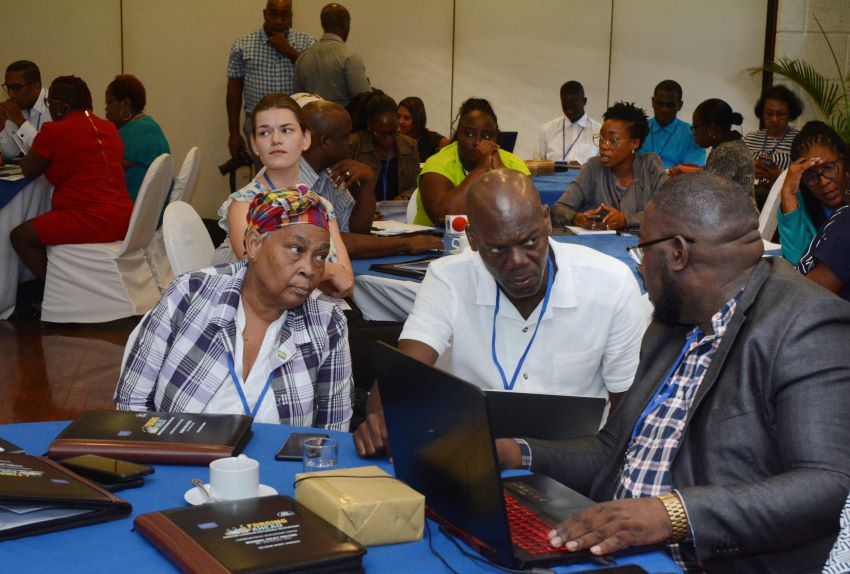
For Barbados and the region to address issues and challenges likely to harm their existence, they must take the approach that is centred on human beings and builds resilient and sustainable economies.
This recommendation came on Monday from Minister of Labour, Social Security and Third Sector, Colin Jordan, as he delivered the feature address and shared Barbados‘ approach during the opening session of the Caribbean Policy Development Centre’s (CPDC) Regional Policy Meeting 2024, at the Crane Resort in St. Philip.
Mr. Jordan also stressed that he believed the third sector – civil society – must be able to share and engage so that a wide range of perspectives could be considered, as policy is developed here.
“How do we do that in an era of serious global geopolitical instability that sees loss of life on a terrible scale … when that global instability can cause supply chain disruptions and shortages of basic necessities, high fuel prices, inflation, mass migration, and social unrest?
“How do we do this in a situation where our populations are declining in size, where non-communicable diseases are increasing, and where super bugs are appearing? Because it is not possible to fight every battle, resilience at the individual, community and national level is key to our survival,” he queried.
The Labour Minister outlined, from a policy perspective, three areas that Government sought to address, and with the involvement of civil society.
He noted that Barbados’ social protection systems, including social security, must be placed on a strong and sustainable footing, if they are to be there when people need them most, during a pandemic, for example.
Mr. Jordan said: “With a birth rate in Barbados of 1.6 live births per woman – well below the 2.1 needed to keep a steady population size – we made adjustments that would avoid what was referred to as a ‘date with destiny’, projected by the actuarial estimates.
“We took the view that contributors must be able to rely on sickness benefits, employment injury benefits, maternity benefits, disability benefits, funeral grants, survivors’ benefits, and of course, old age pension benefits into the future.”
Stressing that these are income replacement schemes which workers and contributors must be able to rely on when unable to earn from work, he said they were part of what is involved in building resilience in our systems and institutions.
Participants also heard that Barbados had made it easier for self-employed persons to participate in the National Insurance Scheme by removing the need to complete forms and allowing for flexible payments, where payments can be made at any time during the year.
The Minister noted that it works out to be $25 a week, but a minimum of $1,200 a year, as part of the scheme. “It can be paid at any point in time – January 1st, September 1st, December 1st or 31. It doesn’t matter, full flexibility and I encourage you to take it up,” he stressed.
Mr. Jordan disclosed that Barbados undertook this path because COVID-19 did not change society but reflected the precarious nature of the existence of some people. He said: “We recognised that in order for our people to be resilient, then in the face of disaster, they must be protected, protected by social schemes. And, so we have made it easier for self-employed persons to be part of our social protection system.”

He also pointed out that resilience includes ensuring workers’ rights are protected and they are able to enjoy fulfilling and rewarding work in safe and health environments. Adding that access to labour justice was a critical area to address when speaking about resilience, Mr. Jordan noted that he expects the Employment Rights Tribunal, set up by the Employment Rights Act, would be able to move to a full-time tribunal before the end of this calendar year.
“We have consulted with our social partners, and we’ve engaged the International Labour Organization and a draft Cabinet Paper will be going to Cabinet later this month,” he stated.
The Minister also told participants that protecting the economically vulnerable was a matter to address when a country aims to build resilience. Outlining Barbados’ approach to this, he said: “This is the reason why we established a national minimum wage in 2021…. It is one thing to set a rate at one point in time, but inflation will reduce the purchasing power of that amount and so it is the reason why we are working on reviewing that wage and we are also going to be indexing it so that the purchasing power of those who earn at the lower levels of our work environment – that purchasing power is maintained, at least at a level where workers are able to live and eat. And that is important.”
Additionally, Mr. Jordan explained that building resilience drove Barbados to develop regulations to ensure that the welfare of workers, such as those working in the fields and at petrol stations, was protected and respected.
Elaborating, he noted that given the regulations Barbados enacted, this meant that toilet facilities must be provided for all workers, wherever they work; fuel attendants are entitled to annual medical checks at no cost to themselves; drinking water must be made available to all workers, and employers must make personal protective equipment available to workers when circumstances require that it be provided.
“Building resilience in the workforce also saw us enacting legislation to prohibit discrimination in employment on a wide range of grounds,” he added, while acknowledging that the island had also recently ratified the ILO Convention on Domestic Workers.
Pointing out that the vulnerable also includes the island’s children and the youth, Mr. Jordan said Government had expanded the Barbados YouthAdvance Corps and enacted the Child Protection Act.
The grouping was informed that from October 2024, non-contributory pensions would be paid, not only to persons who are blind, deaf and mute but to individuals with advanced multiple sclerosis, Down Syndrome, cerebral palsy and autism.
Lauding this, Minister Jordan revealed that civil society organisations were among those who had lobbied for this financial support.
